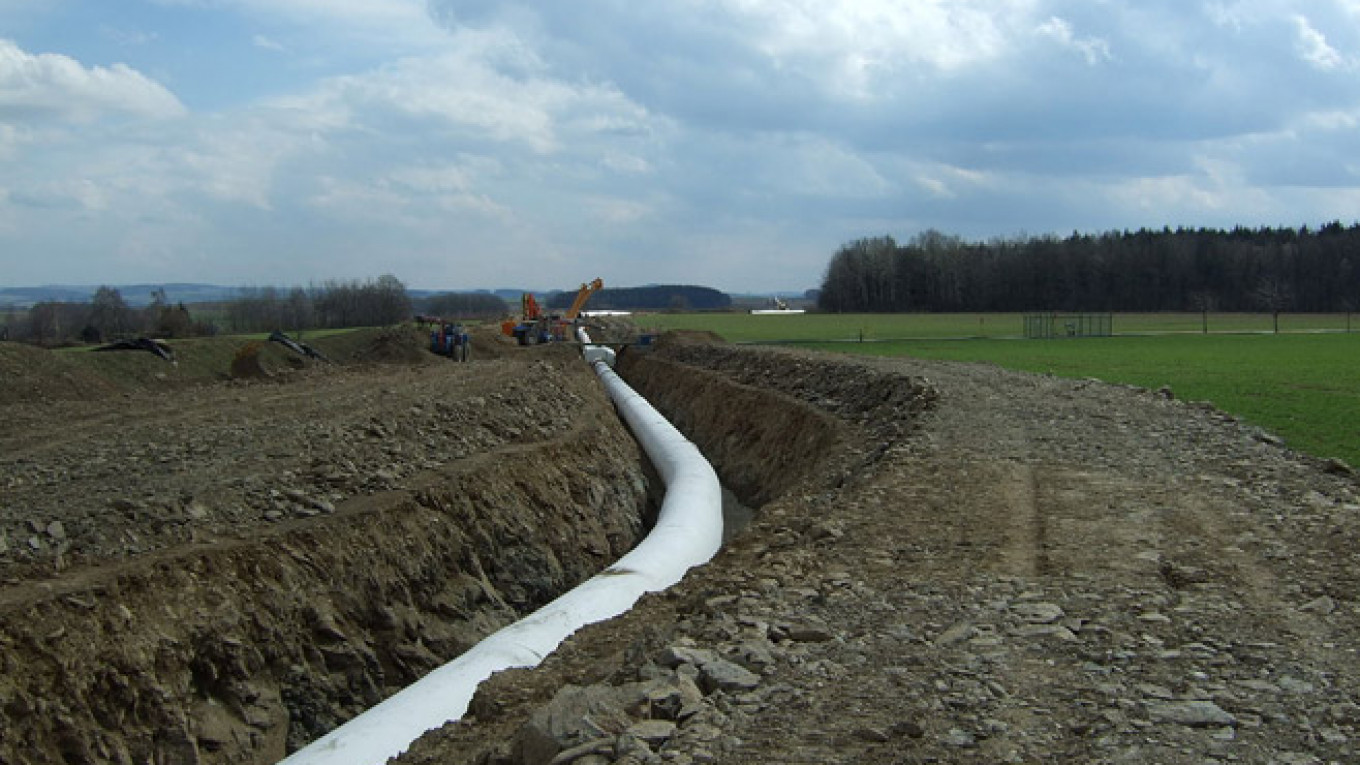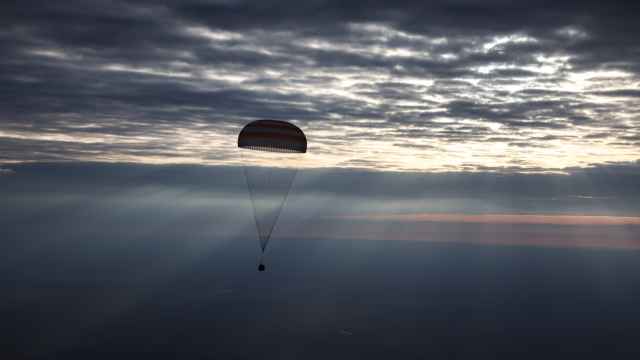BRUSSELS — The European Commission said it had delayed indefinitely a decision on whether to allow Russia greater access to the Opal gas pipeline in northeastern Germany, even though its approval would improve the security of gas supply to Central Europe.
Russian gas giant Gazprom's access to the pipeline has been limited by an EU law that seeks to prevent energy suppliers from dominating infrastructure.
But no one else has taken up the spare capacity, and Western analysts and Russian officials say giving Russia more access could play a major role in improving EU energy security because it connects to Russia's Nord Stream pipeline.
Citing technical reasons, Commission spokeswoman Sabine Berger said on Wednesday that the bloc's executive body had agreed with German regulator BNetzA to prolong the deadline for a decision on Opal.
"It is difficult to specify the exact timing of the decision," she added in an e-mailed statement.
The Russian Energy Ministry said in a separate statement, however, that the decision on Opal had been extended till mid-September.
Introduced in 2011, Nord Stream pumps gas from Russia via the Baltic Sea into Germany, bypassing traditional transit state Ukraine.
Nord Stream's capacity is 55 billion cubic meters, or bcm, a year, but Gazprom, which heads the consortium of shareholders, has been pumping only half that.
Opal provides a link from Nord Stream where it makes landfall in northeastern Germany to the Czech Republic. It has a capacity of 36 bcm but has also been operating at half of that for the past three years.
President Vladimir Putin said in January the Commission had agreed to allow Russia 100 percent access to Opal, but the Commission subsequently said a decision had been delayed, again citing the need for technical clarifications.
North and South
Gazprom, which has been pressuring the European Commission to lift the restrictions, is also locked in conflict with the EU authorities over its even bigger pipeline project, South Stream.
South Stream would carry gas from Russia under the Black Sea to Bulgaria and other EU states. Like Nord Stream, it bypasses Ukraine.
The Commission says South Stream breaks various pieces of EU law, including rules on third-party access and intergovernmental agreements.
Following Russia's annexation of Ukraine's Crimea region, the Commission suspended talks aimed at bringing South Stream into line with EU legislation.
Dominique Ristori, head of the Commission's energy department, said this week the suspension remained firmly in place.
"In the present context our position is very clear. South Stream has no place when we are still in such difficulties with Russia," he told a Brussels meeting on Tuesday.
Talks could resume only on the basis of "clear principles and in particular one principle is crystal clear: the full implementation of EU legislation," he said.
Russia is locked in conflict with the EU and Ukraine over Ukraine's decision to sign a partnership agreement with the EU and over Moscow's annexation of Crimea.
The dispute has been aggravated by a row between Ukraine and Russia over how much Ukraine pays for its gas, which has led Russia to cut off gas supplies.
Because Ukraine is a transit state for about half of the gas the EU receives from Russia, there is a risk of knock-on effects for EU nations if the cut-off is prolonged.
The European Commission has brokered talks between Kiev and Moscow, but the last round collapsed without a deal. EU diplomats said this week they did not expect new tripartite talks before the end of August.
See also:
Ukraine-EU Pipeline to Reach Full Capacity by September, Report Says
A Message from The Moscow Times:
Dear readers,
We are facing unprecedented challenges. Russia's Prosecutor General's Office has designated The Moscow Times as an "undesirable" organization, criminalizing our work and putting our staff at risk of prosecution. This follows our earlier unjust labeling as a "foreign agent."
These actions are direct attempts to silence independent journalism in Russia. The authorities claim our work "discredits the decisions of the Russian leadership." We see things differently: we strive to provide accurate, unbiased reporting on Russia.
We, the journalists of The Moscow Times, refuse to be silenced. But to continue our work, we need your help.
Your support, no matter how small, makes a world of difference. If you can, please support us monthly starting from just $2. It's quick to set up, and every contribution makes a significant impact.
By supporting The Moscow Times, you're defending open, independent journalism in the face of repression. Thank you for standing with us.
Remind me later.






